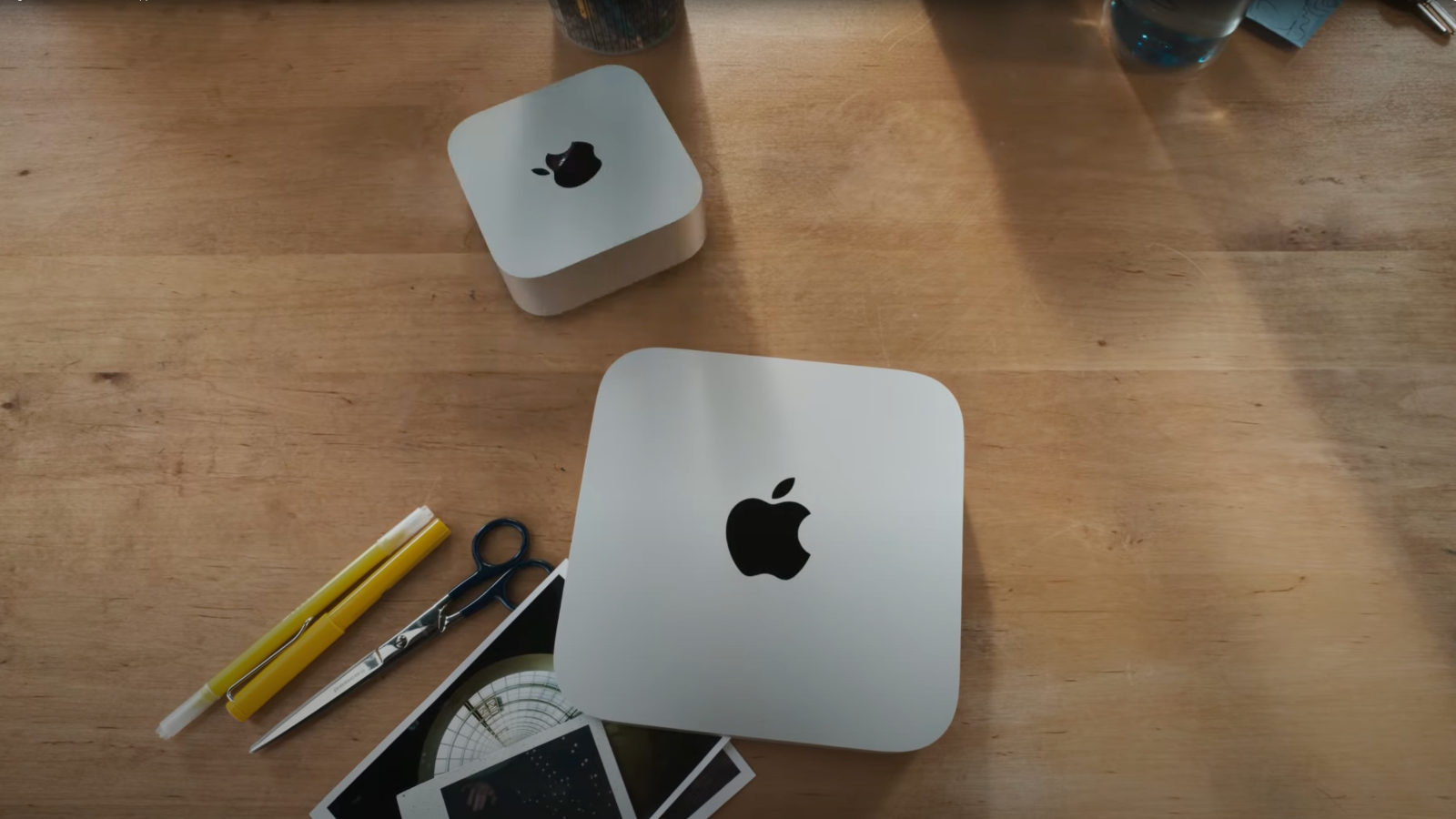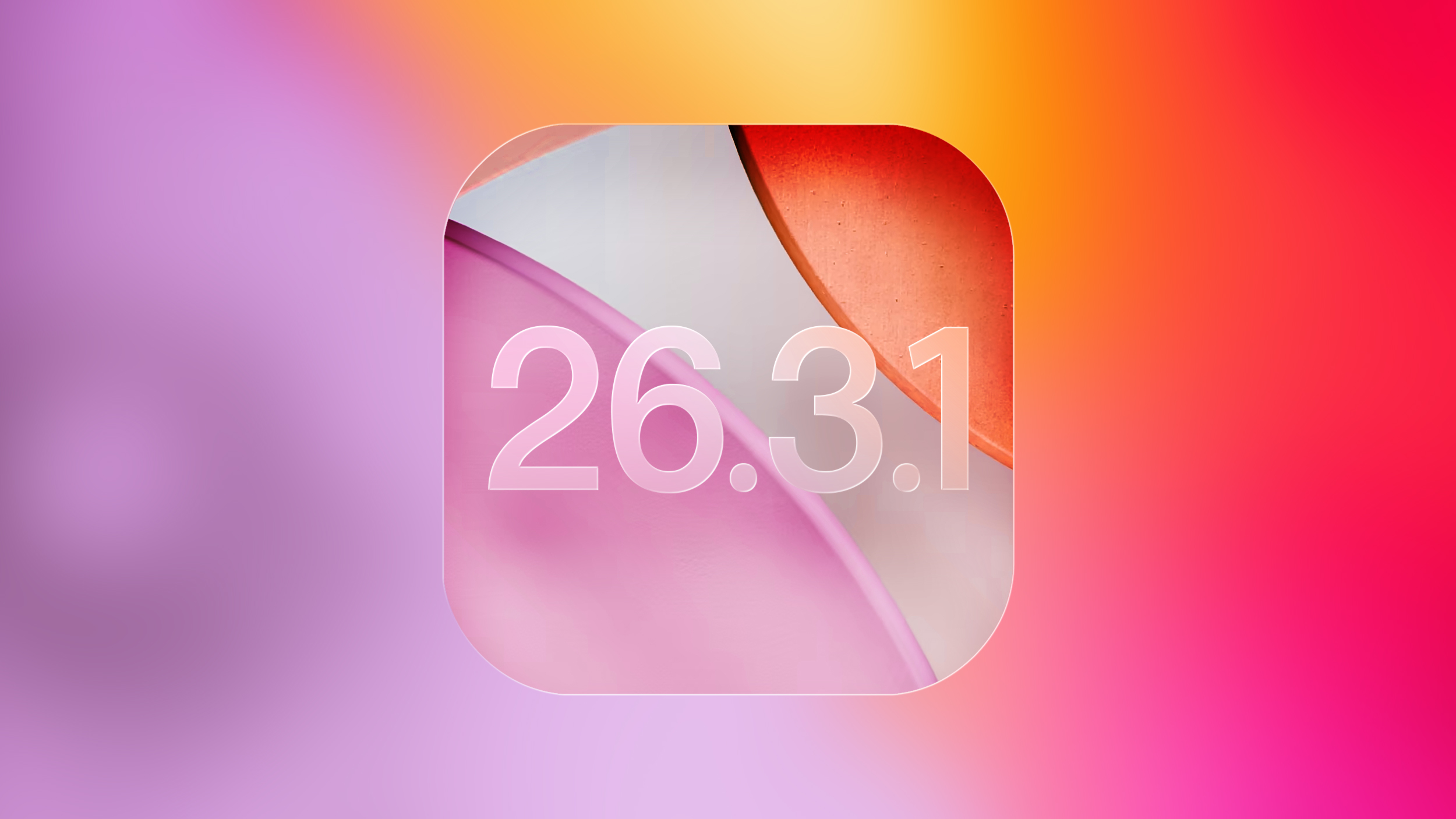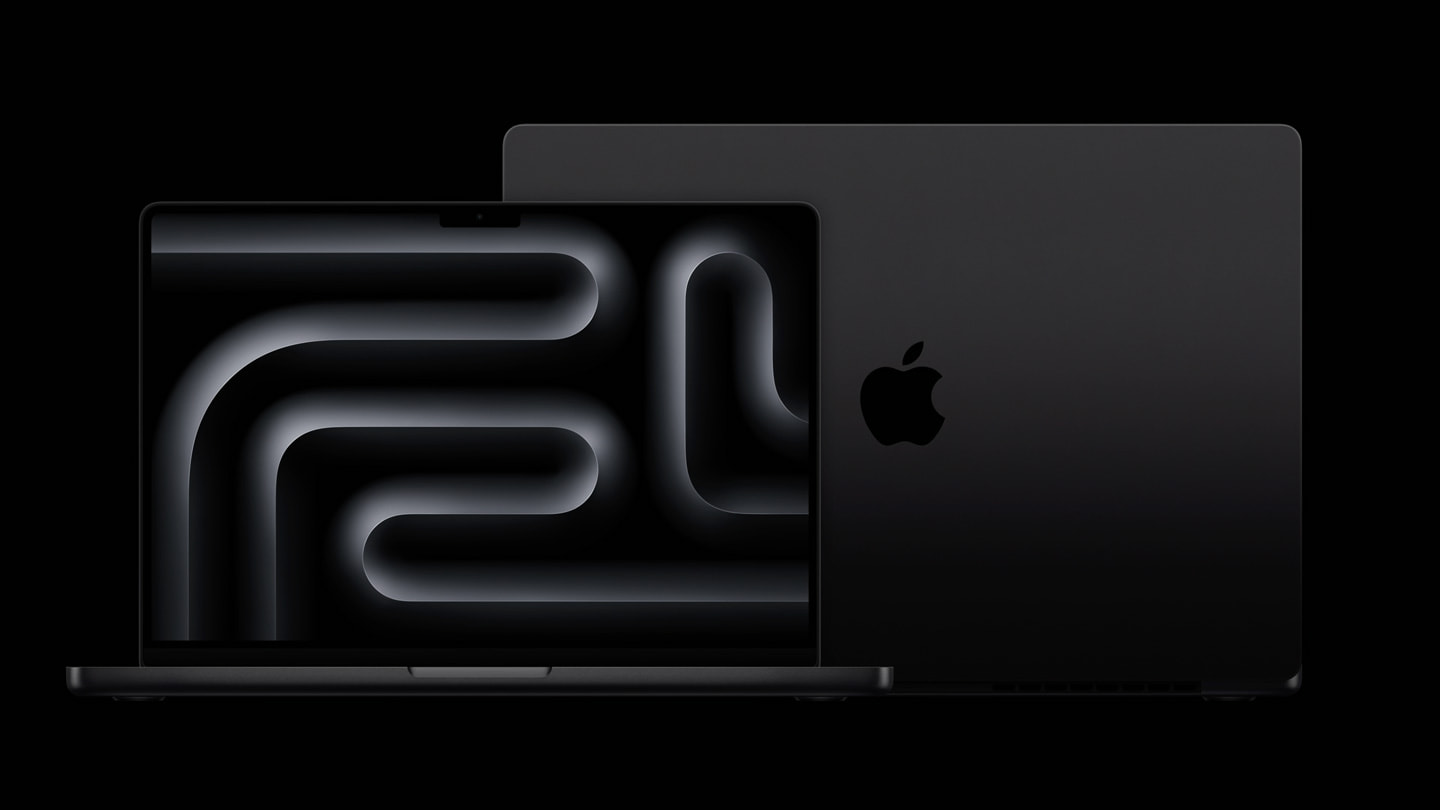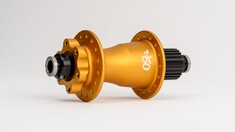Apple just unveiled the first Mac mini redesign in over a decade. The previous major updates to the device were the transition to Apple silicon in 2020 and the option of a Pro-grade chip in 2023, so how does the latest model compare to its two immediate predecessors?
The new Mac mini looks dramatically different to previous models thanks to a markedly smaller enclosure and two front USB-C ports, but it is also much more powerful thanks to the M4 and M4 Pro chips. All of the hardware differences between the 2020, 2023, and 2024 Mac mini models are detailed below:
Mac mini (late 2020)
Mac mini (early 2023)
Mac mini (late 2024)
Height: 1.41 inches (3.58 cm)
Height: 1.41 inches (3.58 cm)
Height: 2.0 inches (5.0 cm)
Width: 7.75 inches (19.70 cm)
Width: 7.75 inches (19.70 cm)
Width: 5.0 inches (12.7 cm)
Depth: 7.75 inches (19.70 cm)
Depth: 7.75 inches (19.70 cm)
Depth: 5.0 inches (12.7 cm)
Weight: 2.6 pounds (1.18 kg)
Weight (M2): 2.6 pounds (1.18 kg)
Weight (M2 Pro): 2.8 pounds (1.28 kg)
Weight (M4): 1.5 pounds (0.67 kg)
Weight (M4 Pro): 1.6 pounds (0.73 kg)
Thermal design with rear air intake and exhaust
Thermal design with rear air intake and exhaust
New thermal design that drives air up through the base
Wi-Fi 6
Wi-Fi 6E
Wi-Fi 6E
Bluetooth 5.0
Bluetooth 5.3
Bluetooth 5.3
3.5mm headphone jack
3.5mm headphone jack with advanced support for high-impedance headphones
3.5mm headphone jack with advanced support for high-impedance headphones
HDMI 2.0
M2: HDMI 2.0
M2 Pro: HDMI 2.1
HDMI 2.1
Two rear USB-A ports
Two rear USB-A ports
Two front USB-C ports
Two Thunderbolt 3/USB4 USB-C ports
M2: Two Thunderbolt 4 ports
M2 Pro: Four Thunderbolt 4 ports
M4: Three Thunderbolt 4 ports
M4 Pro: Three Thunderbolt 5 ports
Maximum of two external displays
Maximum of three external displays
Maximum of three external displays
256GB, 512GB, 1TB, or 2TB storage
M2: 256GB, 512GB, 1TB, or 2TB storage
M2 Pro: 512GB, 1TB, 2TB, or 4TB storage
M4: 256GB, 512GB, 1TB, or 2TB storage
M4 Pro: 512GB, 1TB, 2TB, 4TB, or 8TB storage
The chips offered across the three Mac mini generations are a key point of difference. These changes are outlined below:
Mac mini (late 2020)
Mac mini (early 2023)
Mac mini (late 2024)
M1 chip (made with TSMC’s 5nm (N5) process)
M2 or M2 Pro chip (made with TSMC’s enhanced 5nm (N5P) process)
M4 or M4 Pro chip (made with TSMC’s enhanced 3nm (N3E) process)
8 CPU cores (4 performance + 4 efficiency)
M2: 8 CPU cores (4 performance + 4 efficiency)
M2 Pro: 10 or 12 CPU cores (6 or 8 performance + 4 efficiency)
M4: 10 CPU cores (4 performance + 6 efficiency cores)
M4 Pro: 12 or 14 CPU cores (8 or 10 performance + 4 efficiency)
3.23 GHz maximum CPU clock speed
3.50 GHz maximum CPU clock speed
4.30 GHz maximum CPU clock speed
8 GPU cores
M2: 10 GPU cores
M2 Pro: 16 or 19 GPU cores
M4: 10 GPU cores
M4 Pro: 16 or 20 GPU cores
Updated GPU architecture with improved efficiency
Hardware-accelerated ray-tracing
Video decode engine
Higher-bandwidth video decode engine
Higher-bandwidth video decode engine
Hardware-accelerated H.264 and HEVC
Hardware-accelerated H.264, HEVC, ProRes, and ProRes RAW
Hardware-accelerated H.264, HEVC, ProRes, and ProRes RAW
ProRes encode and decode engine
ProRes encode and decode engine
Support for AV1 decode
LPDDR4X memory
LPDDR5 memory
LPDDR5X memory
68.25GB/s memory bandwidth
M2: 100GB/s memory bandwidth
M2 Pro: 200GB/s memory bandwidth
M4: 120GB/s memory bandwidth
M4 Pro: 273GB/s memory bandwidth
8GB or 16GB memory
M2: 8GB, 16GB, or 24GB memory
M2 Pro: 16GB or 32GB memory
M4: 16GB, 24GB, or 32GB memory
M4 Pro: 24GB, 48GB, or 64GB memory
16-core Neural Engine, 11 trillion operations per second
16-core Neural Engine, 15.8 trillion operations per second
16-core Neural Engine, 38 trillion operations per second
Dedicated display engine
The M4 and M4 Pro Mac mini represent the most significant update to Apple’s compact desktop in years, marking an evolution not only in performance but in design and functionality as well. The new, dramatically smaller enclosure, improved thermal design, and front USB-C ports are standout changes that make the M4 Mac mini much more versatile. For users who prioritize compactness and connectivity without sacrificing power, these design upgrades alone make the 2024 Mac mini an appealing choice.
In terms of performance, the M4 and M4 Pro chips offer substantial advancements. With higher clock speeds, more efficient core architecture, and memory bandwidth improvements, the M4 Mac mini brings noticeable gains in performance over the M1 and M2 models. The new chips also introduce hardware-accelerated ray-tracing, support for AV1 decoding, and an updated GPU architecture, which are particularly beneficial for users in graphic design, video editing, and other GPU-intensive tasks. Paired with LPDDR5X memory, these upgrades make the Mac mini more competitive than ever, even nearing the capabilities of the Mac Studio for many professional workflows.
For M1 Mac mini users, the latest model is a compelling upgrade that delivers tangible improvements in speed, graphics capability, and future-proofing. The leap in Neural Engine performance alone, which now handles 38 trillion operations per second, will significantly enhance AI-driven tasks and applications. Even M2 Mac mini users may find the M4 and M4 Pro models tempting, given the design overhaul and even more high-end configuration options.
However, M2 Pro users who already have a higher-spec configuration may not find the jump to the latest model as essential, especially if their needs are already being met by their current machine’s power and capabilities. For these users, it might be worth waiting for an even more transformative update later down the line.
What is clear is that the M4 and M4 Pro Mac mini provide a noteworthy upgrade for users seeking a high-performance, compact, and cost-effective desktop Mac. The latest generation blurs the line between the Mac mini and Mac Studio, delivering substantial power and formidable specifications in a much smaller footprint. It stands out as one of the best-value options for desktop computing in Apple’s lineup, making it an excellent choice for many users.
This article, “M1 vs. M2. vs. M4 Mac Mini Buyer’s Guide: 25+ Upgrades Compared” first appeared on MacRumors.com
Discuss this article in our forums
Apple just unveiled the first Mac mini redesign in over a decade. The previous major updates to the device were the transition to Apple silicon in 2020 and the option of a Pro-grade chip in 2023, so how does the latest model compare to its two immediate predecessors?
The new Mac mini looks dramatically different to previous models thanks to a markedly smaller enclosure and two front USB-C ports, but it is also much more powerful thanks to the M4 and M4 Pro chips. All of the hardware differences between the 2020, 2023, and 2024 Mac mini models are detailed below:
Mac mini (late 2020)
Mac mini (early 2023)
Mac mini (late 2024)
Height: 1.41 inches (3.58 cm)
Height: 1.41 inches (3.58 cm)
Height: 2.0 inches (5.0 cm)
Width: 7.75 inches (19.70 cm)
Width: 7.75 inches (19.70 cm)
Width: 5.0 inches (12.7 cm)
Depth: 7.75 inches (19.70 cm)
Depth: 7.75 inches (19.70 cm)
Depth: 5.0 inches (12.7 cm)
Weight: 2.6 pounds (1.18 kg)
Weight (M2): 2.6 pounds (1.18 kg)
Weight (M2 Pro): 2.8 pounds (1.28 kg)
Weight (M4): 1.5 pounds (0.67 kg)
Weight (M4 Pro): 1.6 pounds (0.73 kg)
Thermal design with rear air intake and exhaust
Thermal design with rear air intake and exhaust
New thermal design that drives air up through the base
Wi-Fi 6
Wi-Fi 6E
Wi-Fi 6E
Bluetooth 5.0
Bluetooth 5.3
Bluetooth 5.3
3.5mm headphone jack
3.5mm headphone jack with advanced support for high-impedance headphones
3.5mm headphone jack with advanced support for high-impedance headphones
HDMI 2.0
M2: HDMI 2.0
M2 Pro: HDMI 2.1
HDMI 2.1
Two rear USB-A ports
Two rear USB-A ports
Two front USB-C ports
Two Thunderbolt 3/USB4 USB-C ports
M2: Two Thunderbolt 4 ports
M2 Pro: Four Thunderbolt 4 ports
M4: Three Thunderbolt 4 ports
M4 Pro: Three Thunderbolt 5 ports
Maximum of two external displays
Maximum of three external displays
Maximum of three external displays
256GB, 512GB, 1TB, or 2TB storage
M2: 256GB, 512GB, 1TB, or 2TB storage
M2 Pro: 512GB, 1TB, 2TB, or 4TB storage
M4: 256GB, 512GB, 1TB, or 2TB storage
M4 Pro: 512GB, 1TB, 2TB, 4TB, or 8TB storage
The chips offered across the three Mac mini generations are a key point of difference. These changes are outlined below:
Mac mini (late 2020)
Mac mini (early 2023)
Mac mini (late 2024)
M1 chip (made with TSMC’s 5nm (N5) process)
M2 or M2 Pro chip (made with TSMC’s enhanced 5nm (N5P) process)
M4 or M4 Pro chip (made with TSMC’s enhanced 3nm (N3E) process)
8 CPU cores (4 performance + 4 efficiency)
M2: 8 CPU cores (4 performance + 4 efficiency)
M2 Pro: 10 or 12 CPU cores (6 or 8 performance + 4 efficiency)
M4: 10 CPU cores (4 performance + 6 efficiency cores)
M4 Pro: 12 or 14 CPU cores (8 or 10 performance + 4 efficiency)
3.23 GHz maximum CPU clock speed
3.50 GHz maximum CPU clock speed
4.30 GHz maximum CPU clock speed
8 GPU cores
M2: 10 GPU cores
M2 Pro: 16 or 19 GPU cores
M4: 10 GPU cores
M4 Pro: 16 or 20 GPU cores
Updated GPU architecture with improved efficiency
Hardware-accelerated ray-tracing
Video decode engine
Higher-bandwidth video decode engine
Higher-bandwidth video decode engine
Hardware-accelerated H.264 and HEVC
Hardware-accelerated H.264, HEVC, ProRes, and ProRes RAW
Hardware-accelerated H.264, HEVC, ProRes, and ProRes RAW
ProRes encode and decode engine
ProRes encode and decode engine
Support for AV1 decode
LPDDR4X memory
LPDDR5 memory
LPDDR5X memory
68.25GB/s memory bandwidth
M2: 100GB/s memory bandwidth
M2 Pro: 200GB/s memory bandwidth
M4: 120GB/s memory bandwidth
M4 Pro: 273GB/s memory bandwidth
8GB or 16GB memory
M2: 8GB, 16GB, or 24GB memory
M2 Pro: 16GB or 32GB memory
M4: 16GB, 24GB, or 32GB memory
M4 Pro: 24GB, 48GB, or 64GB memory
16-core Neural Engine, 11 trillion operations per second
16-core Neural Engine, 15.8 trillion operations per second
16-core Neural Engine, 38 trillion operations per second
Dedicated display engine
The M4 and M4 Pro Mac mini represent the most significant update to Apple’s compact desktop in years, marking an evolution not only in performance but in design and functionality as well. The new, dramatically smaller enclosure, improved thermal design, and front USB-C ports are standout changes that make the M4 Mac mini much more versatile. For users who prioritize compactness and connectivity without sacrificing power, these design upgrades alone make the 2024 Mac mini an appealing choice.
In terms of performance, the M4 and M4 Pro chips offer substantial advancements. With higher clock speeds, more efficient core architecture, and memory bandwidth improvements, the M4 Mac mini brings noticeable gains in performance over the M1 and M2 models. The new chips also introduce hardware-accelerated ray-tracing, support for AV1 decoding, and an updated GPU architecture, which are particularly beneficial for users in graphic design, video editing, and other GPU-intensive tasks. Paired with LPDDR5X memory, these upgrades make the Mac mini more competitive than ever, even nearing the capabilities of the Mac Studio for many professional workflows.
For M1 Mac mini users, the latest model is a compelling upgrade that delivers tangible improvements in speed, graphics capability, and future-proofing. The leap in Neural Engine performance alone, which now handles 38 trillion operations per second, will significantly enhance AI-driven tasks and applications. Even M2 Mac mini users may find the M4 and M4 Pro models tempting, given the design overhaul and even more high-end configuration options.
However, M2 Pro users who already have a higher-spec configuration may not find the jump to the latest model as essential, especially if their needs are already being met by their current machine’s power and capabilities. For these users, it might be worth waiting for an even more transformative update later down the line.
What is clear is that the M4 and M4 Pro Mac mini provide a noteworthy upgrade for users seeking a high-performance, compact, and cost-effective desktop Mac. The latest generation blurs the line between the Mac mini and Mac Studio, delivering substantial power and formidable specifications in a much smaller footprint. It stands out as one of the best-value options for desktop computing in Apple’s lineup, making it an excellent choice for many users.Related Roundup: Mac miniTag: M4 Mac miniBuyer’s Guide: Mac Mini (Buy Now)Related Forum: Mac miniThis article, “M1 vs. M2. vs. M4 Mac Mini Buyer’s Guide: 25+ Upgrades Compared” first appeared on MacRumors.comDiscuss this article in our forums Read More MacRumors: Mac News and Rumors – All Stories
#Techno #PCWorld

















